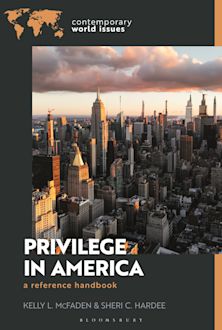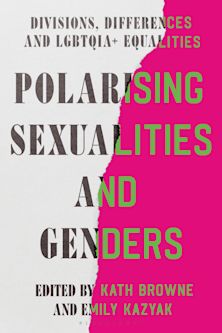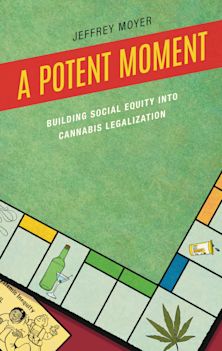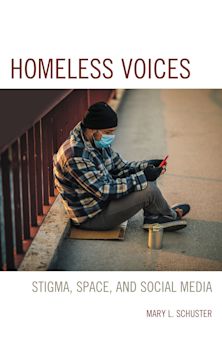- Home
- ACADEMIC
- Sociology
- Sociology of Inequality and Social Divisions
- Identity, Rights, and Awareness
Identity, Rights, and Awareness
Anticaste Activism in India and the Awakening of Justice through Discursive Practices
Identity, Rights, and Awareness
Anticaste Activism in India and the Awakening of Justice through Discursive Practices
You must sign in to add this item to your wishlist. Please sign in or create an account
Description
For over a decade, Jeremy Rinker, Ph.D. has interacted, observed, and studied Dalit anti-caste social movements in India. In this critical comparative approach to India’s modern anti-caste resistance, Dr. Rinker emphasizes the complex interdependence between narrative practices and social transformation in understanding the centuries old caste basis of India’s most fundamental of social conflicts. Through the comparative case study of three modern social movement organizations, this book provides a fresh lens to both better understand and potentially transform caste marginalization and oppression. Through theoretical analysis, auto-ethnographic field notes, and narrative storytelling, Dr. Rinker brings the lived experience of modern Dalits to life for a Western reader unfamiliar with the entrenched nature of India’s complex caste dynamics. The book is also written for anti-caste activists in that it endeavors to develop reflective practice insights into activists’ own sense and use of narrative agency. A timely reappraisal of Indian anti-caste movement infighting and ideological discord, this book will be of interest to both students of South Asian caste and those that want to better understand injustice narration as an important means of structural change. With sharp analysis and insight Identity, Rights, and Awareness: Anticaste Activism in India and the Awakening of Justice through Discursive Practices will be of interest to scholars of South Asian studies as well as activists working for conflict transformation and peace.
Table of Contents
1. Caste and Anticaste Identity: The Evolution and Legacy of Difference in Indian Social Life
2. Narrative Violence and Injustice Awareness: Reading Anticaste Activism as Narrative for Social Change
3. Doing Strategy in Indian Anticaste Activism: A Systems Approach to Understanding the
Struggle for Identity, Rights, and Awareness
4. Fostering Dalit Buddhist Identity: TBMSG’s Organizing around Ambedkar Buddhism
5. All-India Rise Up: BAMCEF and Educating for a National Identity and Injustice Awareness
6. Narrative Testimony as Rights Agitation: PVCHR’s International Rights Discourse
Conclusion: Identity, Rights, and Awareness: The Power of Discourse to Change Entrenched Systems of Oppression
Epilogue: The Making of Discursive Change Platforms and Writing from the Periphery as a Form of Resistance towards the Dominant Center
Product details
| Published | 15 Oct 2018 |
|---|---|
| Format | Ebook (Epub & Mobi) |
| Edition | 1st |
| Extent | 240 |
| ISBN | 9781498541947 |
| Imprint | Lexington Books |
| Illustrations | 1 BW Illustration |
| Series | Conflict Resolution and Peacebuilding in Asia |
| Publisher | Bloomsbury Publishing |
About the contributors
Reviews
-
The persistence of the problem of caste calls for innovative theories and more data for its eradication. Identity, Rights, and Awareness is a welcome contribution in this direction. The first book in the series Conflict Resolution and Peacebuilding in Asia, it builds on the groundbreaking contribution of Johan Galtung. . . . Though a comparative study of three anti-caste movements is itself a stupendous task, Identity, Rights, and Awareness also provides readers with a detailed analysis of each movement. . . . Jeremy Rinker has conscientiously elevated TBM, BAMCEF, and PVCHCR organizations, as well as their intel-lectuals, members, and movements, to take their rightful place in the global academy.
Journal Of Buddhist Ethics
-
Jeremy Rinker offers a fascinating picture of the diversity of anticaste activism in contemporary India. Focusing on the varying narratives of oppression voiced by Buddhist, rights-based, and radical activists, he shows how each can enlighten and empower Dalit communities. Rinker asks probing questions about the strengths and weaknesses of these approaches and about ways of reconciling them. This is a book not only for India specialists but also for scholars of social movements and activists within those movements.
Clifford Bob, Duquesne University
-
Identity, Rights, and Awareness engages with anticaste movements and activists to unearth the complexities of social justice discourse in India. It makes narratives of historically persecuted population audible by highlighting methods employed by them to change the existing exploitative social system via establishing new organizations and identities. Above all, it opens new theoretical and methodological debates on these issues among academics world over.
Vivek Kumar, Jawaharlal Nehru University
-
Rinker’s work underscores the indispensability of education as an empowering tool for Dalits—a reality that is emphasized as a critical universal in the resistance identity of the three organizations. This is reiterated by a quote from Dr. B.R. Ambedkar: “The backward classes have come to realize that after all education is the greatest material benefit for which they can fight… that without education [their] existence is not safe” (p. 12). Although caste discrimination continues in India, this book is an asset to scholars, practitioners, activists, and politicians working to mitigate caste hierarchy. Within that context, this book is a milestone in peace studies.
Peace Research: The Canadian Journal of Peace and Conflict Studies



































